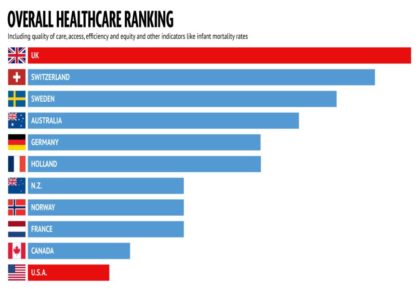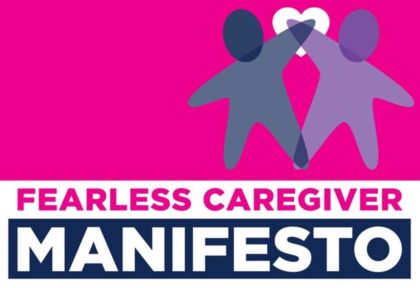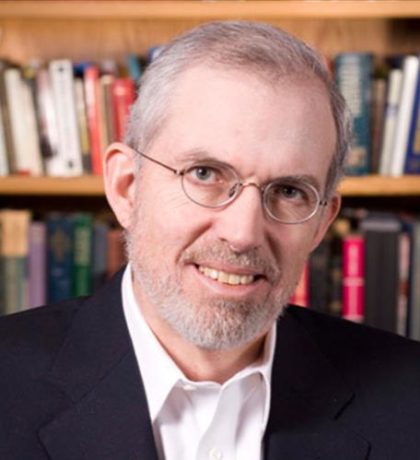Unitarian Universalist Congregation of Columbia
November 26, 2017
Rev. Jeff Liebmann
Opening Words
From Helping Yourself Help Others by Rosalynn Carter
There are only four kinds of people in the world:
- Those who have been caregivers;
- Those who are currently caregivers;
- Those who will be caregivers; and
- Those who will need caregivers.
Why Do We Love Our Pets?
How many of you have pets at home? Why do we have pets? Many of us have pets because pets can provide us companionship and fun. But many pet owners will say that they have pets because of the love they provide. And at the same time, pets give us the chance to love another being as well.
Sometimes, human relationships can be hard. There are times when we all feel bad about the way we
 are with a friend, a brother or sister, a parent, or someone else in our lives. We humans are complicated creatures, and our relationships can be tricky.
are with a friend, a brother or sister, a parent, or someone else in our lives. We humans are complicated creatures, and our relationships can be tricky.But pets often seem to be forever loyal to us. No matter what happens, our pets seem to always be there, always loving us, and wanting to be with us.
In return, we love our pets. But, here is something I would like you to think about. We don’t love someone because of what they do for us. For instance, you don’t love a dog because it plays with you. You don’t love a cat because it rubs you and purrs. And you don’t love a parent because they make your meals, buy your clothes, or provide a home for you. You love a pet or a parent because you care about them. You want them to be happy and to feel good about having you in their lives.
When you love someone, it isn’t about what you love gives you in return. Love is its own reward. We love because of how it makes us feel.
So when your dog doesn’t feel like playing, or your cat ignores you; when your parents can’t always do what you want them to do, you don’t stop loving them. You don’t stop loving them because it is the act of loving that sustains us.
Reflection
From The Fearless Caregiver by Gary Barg
The other day on television, I heard a commentator bemoaning the lack of heroes in today’s society. He could not have been more wrong. I know because I work in the midst of true heroes…They are the mothers, fathers, sisters, and brothers who have assumed the role of caregiver to the chronically ill and disabled population.
 These roles are not sought after, not applied for. There is no time to prepare, and in most instances these roles are permanent…There is a delicate balance that these heroes maintain: that of assuming a new role in the family, and the care recipients need to be reminded that they are still an integral part of the family. This balancing act necessitates reaching within ourselves to find both the physical and emotional strength to deal with it on a daily basis…
These roles are not sought after, not applied for. There is no time to prepare, and in most instances these roles are permanent…There is a delicate balance that these heroes maintain: that of assuming a new role in the family, and the care recipients need to be reminded that they are still an integral part of the family. This balancing act necessitates reaching within ourselves to find both the physical and emotional strength to deal with it on a daily basis…The responsibility of the individual’s case manager is overwhelming and frightening, particularly at the onset of home care. I have watched as families somehow reorganize the daily tasks, learn the medical routine, and begin to carve out a new, albeit different, lifestyle. These families are the real heroes and truly one of this country’s natural resources.
The same people who have helped others all their lives are now in need of assistance, and they do not know how to ask for what they need.
Sermon – The Fearless Caregiver
My first real experience with caregiving happened just after my 14th birthday. My older brothers had moved on to college and marriage, and I lived alone with my parents.
My grandmother was diagnosed with a late stage cancer. So, every day throughout the month of August, my mother and I drove the 60 miles down to Moundsville WV to sit with her in Reynolds Memorial Hospital. We drove back to Pittsburgh every afternoon to pick up my Dad from the bus stop and have dinner.
I had already had some brief experiences with hospitals after each of my parents underwent surgeries. I was accustomed to sitting in a hospital room for hours, doing homework, playing games, or watching TV with whoever was present. By that summer, I was a voracious reader, so I worked on my college reading list, finishing off about 50 books. During the rides to and from the hospital, I remember having some of the best conversations with my Mom about everything under the sun.
By the end of August, my Mom developed kidney stones, partly due to physical and mental exhaustion. She was laid up for quite some time while preparations were made to transfer my Grandma to Memphis to be with my Uncle Bob and Aunt Betty, who was a nurse. I flew my Grandma to Tennessee (my first airplane ride) and stayed for a week or so while arrangements were made.
I remember well the dogs my aunt and uncle had – three Chihuahuas who represented three generations of the same bloodline. The elder dog was 21 years old. She was blind and deaf and slept for 23 hours each day. Mid-afternoon, she would wake up and toddle from the bedroom to the kitchen, where she would eat and poop standing in the same place, and then return to her bed. She seemed to be in no pain, so my aunt and uncle cared for her as best they could.
Years later, when my own children were teenagers, my Uncle Bob died. He had served a small Methodist congregation in Memphis as lay minister for many years. I badly wanted to attend the funeral, but had committed to driving our youth to a conference in Ohio that weekend and serving as their sponsor. After debating my options, I attended the youth con.
On Saturday night, we had a sharing activity during the worship service. I spoke about my sorrow on my uncle’s death and my conflict over attending his funeral. But I said that I knew my uncle would have told me that I needed to be here, working with young people.
Fast forward a few more years.
 Now it was my mother with the diagnosis of terminal cancer. She suffered through a hellish nine months. Even with the wonderful assistance of hospice workers and my help, the experience drained my Dad. After my Mom died, I moved my father to a nearby assisted living facility, where I was able to help him live a few more good years.
Now it was my mother with the diagnosis of terminal cancer. She suffered through a hellish nine months. Even with the wonderful assistance of hospice workers and my help, the experience drained my Dad. After my Mom died, I moved my father to a nearby assisted living facility, where I was able to help him live a few more good years.With the ever growing life expectancy in this country, the Baby Boomer generation also acquired another label – the sandwich generation. Many of us served as caregivers to the generation preceding us while at the same time raising the children of the next generation. This situation now represents the norm for many people.
Many challenges present themselves to new caregivers. Often, the need for a loved one to receive care comes with little or no notice. Whether a child or elder, diseases and injuries rarely offer us warnings and the necessity to offer care can occur suddenly.
Also, the changes to our lives can differ radically from case to case. Circumstances of the physical and/or mental health diagnosis, logistics of living quarters
and requirements, administration of drugs or therapy, legal matters and finances, and the changes in lifestyle and schedule can be dramatic. No two situations are completely alike, which can make us feel isolated and unsupported.
Whatever the impact on the patient, the caregiver can also endure huge alterations in similar areas. Caregivers must become nurse and doctor, lawyer and accountant, cook and driver. And, of course, the caregiver still retains their own responsibilities for family, job, and school.
America continues to lag behind other industrialized nations providing adequate health care and medical insurance to its citizens. We cannot count on this situation to improve anytime in the near future.
So, we must do whatever we can to help our friends and neighbors, our family and loved ones who provide care to the injured and sick in our nation. One way to accomplish that task calls on us to adopt certain principles designed to facilitate the job of caregivers while maintaining their own ability to self-determination and happiness.
Gary Barg, editor of Today’s Caregiver magazine, wrote a manifesto aimed at not only helping caregivers with their tasks, but empowering them to do so proactively and boldly. By addressing the challenges head on, Barg seeks to take the fear out of caregiving. His manifesto includes 10 affirmations to help caregivers care for a loved one while still having a life of their own.

1. I will fearlessly assess my personal strengths and weaknesses, work diligently to bolster my weaknesses, and graciously recognize my strengths.
You have the right to take care of yourself as well as your loved one. This is not an act of selfishness. Rather, self care gives you the capacity to better take care of your loved one.
2. I will fearlessly make my voice heard with regard to my loved one’s care, be a strong ally to those professional caregivers committed to caring for my loved one, and a fearless shield against those not committed to caring for my loved one.
When you donate time and energy to caregiving, you earn the right to sit at the table when discussing diagnosis and treatment, provision of services, and disposition of your loved one’s physical and financial resources.
3. I will fearlessly not sign or approve anything I do not understand, and will steadfastly request the information I need until I am satisfied with the explanations.
As advocate and ally, you must allow yourself to seek help from experts even if others object. Only you can assess your own comprehension and comfort level with the state of your loved one’s care.
4. I will fearlessly ensure that all necessary documents are in place in order for my wishes and those of my loved ones to be met in case of a medical emergency. These will include Durable Medical Powers of Attorney, Wills, Trusts and Living Wills.
No one enjoys negotiating the morass of legal documents we face in the course of our lives. In this, and other ways, your loved one may seek to manipulate you through guilt or other appeals. Reject these attempts, whether conscious or unconscious, so that you never need face a crisis unprepared and unsupported. Remember, guilt is a self-made emotion that wastes energy we can use for good, healthy, and productive activities.
5. I will fearlessly learn all I can about my loved one’s healthcare needs and become an integral member of his or her medical care team.
Expect that new strides in resources available to aid physically and mentally impaired person will be made. At the same time, however, keep abreast of similar strides being made toward aiding and supporting caregivers. I cannot recommend Gary Barg’s book, The Fearless Caregiver, enough.
6. I will fearlessly seek out other caregivers or care organizations and join an appropriate support group; I realize that there is strength in numbers and will not isolate myself from those who are also caring for their loved ones.
Protect yourself and your right to make a life for yourself that will sustain you when your loved one no longer needs your full-time help.
7. I will fearlessly care for my physical and emotional health as well as I care for my loved one; I will recognize signs of my own exhaustion and depression; and I will allow myself to take respite breaks and to care for myself on a regular basis.
Get angry, be depressed, and express other difficult feelings occasionally. Also, allow yourself to receive consideration, affection, forgiveness, and acceptance for what you provide your loved one, and offer those qualities in return. Laugh, let yourself cry, take regular breaks every day, and treat yourself at least once a month to a personal pleasure.
8. I will fearlessly develop a personal support system of friends and family and remember that others also love my loved one and are willing to help if I let them know what they can do to support my caregiving.
Maintain facets of your own life that do not include the person you care for, just as you would if that person were healthy. You know that you do everything you reasonably can for your loved one, and you have the right to do some things just for yourself.
9. I will fearlessly honor my loved one’s wishes, as I know them to be, unless these wishes endanger their health or mine.
Take pride in what you are accomplishing and applaud the courage you exhibit when meeting the needs of your loved one. Caregiving is hard work and resources to guild our efforts are not plentiful.
10. I will fearlessly acknowledge when providing appropriate care for my loved one becomes impossible either because of his or her condition or my own and seek other solutions for my loved one’s caregiving needs.
Especially when faced with terminal diagnoses, we know that the act of caregiving is also, in a way, a form of “pre-grieving.” The time will come when you can no longer provide the level of care needed, or the need for giving care ends. You have the right to prepare yourself appropriately for that time and a life in which your loved one is no longer physically present.
The overriding message for caregivers involves caring for oneself, because no one can care for another if they do not take adequate care of themselves. Like most cities, the resources available for caregivers here in Columbia are mixed. Support groups exist, but many employ a dominant religious underpinning that may not suit those who do not share those beliefs.
With that challenge in mind, I hope to assess the need for our congregation to reinstitute an effort to help caregivers dealing with challenges related to all of the issues discussed in the Caregivers Manifesto. If you are a caregiver seeking help, or know a caregiver who could use our assistance, please get in touch with a member of our Caring Committee, or with me and we will explore ways to provide that assistance.
Spirit of life and love that goes by many names, be with us now in this moment of shared solitude.
 In his book Life Lines (Holding on and Letting Go), Unitarian Universalist minister Forrest Church wrote:
In his book Life Lines (Holding on and Letting Go), Unitarian Universalist minister Forrest Church wrote:We can be crippled by grief. Pathological suffering closes us off from others rather than connecting us to them. I am talking about something different: emptying ourselves to be filled, losing ourselves to be found, giving away our hearts even though they surely will be broken. And throughout the days we suffer, remembering that pain, physical or spiritual, can be a sign of healing.
Meaning doesn’t emerge from longing for what we lack, things we have lost or will likely never find…We should wish to think instead for things closer at hand:
The courage to bear up under pain;
The grace to take our successes lightly;
The energy to address tasks that await our doing;
The meaning to be found in giving ourselves to others;
The liberation that follows when we forgive another;
The comfort to be taken in opening our hearts to another;
The joy to be gained even in the most common endeavor;
The pleasure of one another’s company;
The wonder that wells within the simple fact of our shared being.
Amen, Blessed Be, and Let it be so.
Extinguishing the Chalice/Closing Words
From No Man is an Island by Thomas Merton
Love does not seek a joy that follows from its effect; its joy is the effect itself, which is the good of the beloved. If my love be pure I do not have to seek for myself the satisfaction of loving. Love seeks one thing only: the good of the one loved. It leaves all other secondary effects to take care of themselves. Love is its own reward.
